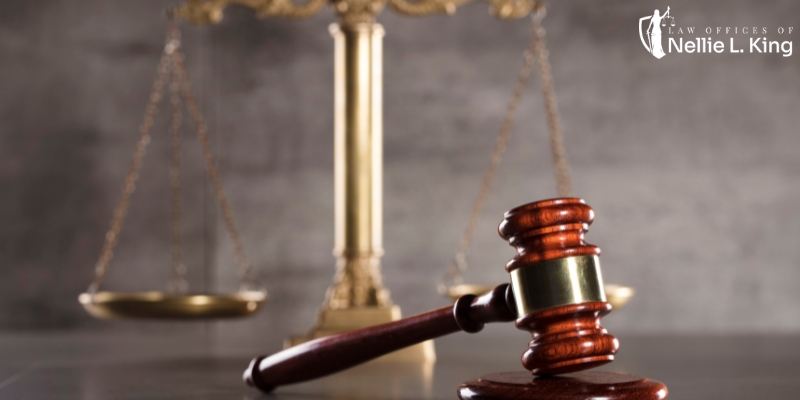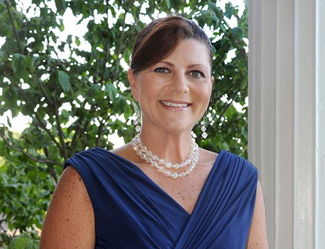Schedule A Consultation Today!
West Palm Beach Homicide Lawyer
West Palm Beach, FL Homicide Attorney
Types of Murder Charges in Florida
If you are facing murder, homicide, or manslaughter charges, contact Attorney Nellie L. King immediately. Murder or homicide charges hold severe and drastic consequences if you are found guilty. Attorney King uses a personalized approach with each of her clients to build a strong and tenacious defense strategy. As a former public defender, she will work one-on-one with her clients to frame a just defense around their circumstances in a way that is truthful, fair, and, most importantly, creates empathy around her client’s situation.
To better understand the circumstances of your case and potential penalties, note the different types of murder charges:
- 1st Degree Murder
- 2nd Degree Murder
- 3rd Degree Murder
- DUI Manslaughter
- Felony Murder
- Manslaughter
- Vehicular Manslaughter
- First Degree Premeditated Murder
This type of charge refers to the unlawful killing of a human being when perpetrated from a premeditated design to cause death to another human being. First degree murder is punishable by life in prison without parole or the death penalty.
Second Degree Murder
The unlawful killing of a human being, when perpetrated by an act imminently dangerous to another and showing a depraved mind without regard to human life, although without any premeditated intent to cause another’s death, is considered second degree murder. A person can be convicted of second-degree murder even if they did not specifically intend to kill anyone. Second degree murder is considered a felony of the first degree and is punishable by up to life in prison.
Third Degree Murder
This type of murder refers to the unlawful killing of a human being when perpetrated without any design to effect death by a person engaged in the perpetration of, or in the attempt to perpetrate, any felony other than those under felony murder.
DUI Manslaughter
This occurs when a person is driving or in actual physical control of a vehicle and has a blood alcohol level of over 0.08, or is under the influence of alcohol to the extent that their normal faculties are impaired, and, as a result, causes the death of another person. DUI manslaughter is a second-degree felony punishable by a maximum of 15 years in the Florida Department of Corrections.
Felony Murder
There are instances when an individual might be charged with first degree murder even if they had no intent to kill the victim. If a death occurs during the commission of a dangerous felony, prosecutors may seek a conviction based on the Felony Murder Doctrine. The Felony Murder Rule allows prosecutors to charge someone with first degree murder when the death of a non-participant in the offense occurs during the commission, attempt to commit, or escape from the commission of various enumerated felonies.
Some examples of such felonies include:
- Arson
- Aggravated child abuse
- Aggravated stalking
- Burglary
- Carjacking
- Drug trafficking
- Escape
- Home invasion robbery
- Kidnapping
- Robbery
- Sexual battery
Participants in the underlying offense are deemed responsible under the law if a homicide occurs during the commission of the underlying crime. The state does not have to prove that the defendant intended for death to result from their actions. In fact, the death can even be accidental and still be considered a felony murder.
Defending a felony murder charge could involve defending the felony in question that the state claims the accused was participating in when the death occurred. Another defense could be the Independent Act Doctrine.
This doctrine can be a viable defense to felony murder when:
- The homicide was not committed by the defendant
- The defendant did not intend for the homicide to occur
- The killing was not part of the plan and not a reasonably foreseeable consequence of the plan to commit the underlying felony
The draconian aspects of the Felony Murder Rule are obvious – to hold a person accountable for the actions of another, without any correlation between the varying levels of the parties’ involvement, or level of intent, flies in the face of the age-old principle of mens rea, or “guilty mind.” The potential punishments for a conviction based under a felony murder theory are the same as for first degree premeditated murder – life in prison without parole or the death penalty.
Manslaughter
Manslaughter is the killing of a human being by the act, procurement, or culpable negligence of another, without lawful justification. Manslaughter allegations lack the element of premeditation associated with other murder charges.
Vehicular Homicide
The killing of a human being, or the killing of a viable fetus by any injury to the mother, caused by the operation of a motor vehicle by another in a reckless manner likely to cause death or great bodily harm to another is considered vehicular homicide. This is a second-degree felony punishable by a maximum of 15 years in the Florida Department of Corrections.

What Defense Strategies Work Best for Murder, Homicide, and Manslaughter Charges?
When you are accused of homicide, it can feel like the weight of the world is on your shoulders. If you are convicted, you could face significant prison time or even the death penalty. That is why you must have an experienced and knowledgeable West Palm Beach homicide attorney on your side, fighting to demonstrate how the charges against you are not accurate or working to get them reduced.
The best defense strategy is dependent on the circumstances of your case, but some of the options that may be available to you include:
- Proving that you acted in self-defense: If you can legally demonstrate that you were defending yourself or someone else from imminent harm, then you may be able to avoid a homicide conviction. The law is more forgiving to those who act in self-defense, as long as you can demonstrate that your actions were reasonable under the circumstances. For example, if you were being attacked with a knife and killed the other person to protect yourself, that would be considered self-defense. If you also intervened to protect someone else who was being attacked, that would also be a valid self-defense claim.
- Proving that you did not commit the crime: In some cases, there may be evidence that exonerates you and shows that you could not have committed the crime. For example, if there is video footage of you somewhere else at the time of the crime, that would be strong evidence in your favor. If there is DNA evidence that does not match yours, that could also be helpful. People are mistakenly charged with crimes all the time, and if that is what happened in your case, then your attorney will work to get the charges against you dropped.
- Proving that you did not intend to kill: If you can show that you did not mean to kill the victim, then you may be able to get the charges against you reduced. For example, if you were engaging in a fight and you hit the victim with your fist and the victim died, that would be considered involuntary manslaughter. If you had no intention of killing the victim, then you may be convicted of involuntary manslaughter, which is a more lenient charge than murder.
- Mental health defenses: If you can show that you were not in your right mind at the time of the crime, then you may be able to use that as a defense. For example, if you were suffering from a mental illness or you were under the influence of drugs or alcohol, that may be something that your attorney can use to try to get the charges against you reduced.
- Taking a plea deal: In some cases, it may be in your best interest to take a plea deal. This is something that you should discuss with your attorney, as they will be able to advise you on whether or not a plea deal is a good option in your case. If the prosecution has compelling evidence against you and it is likely that you will be convicted, then taking a plea deal may be the best way to avoid a long prison sentence.
What Makes a Strong Homicide Defense?
The best defense against homicide charges will vary depending on the circumstances of your case. However, there are some general things that can make any homicide defense stronger:
- Having an experienced and knowledgeable attorney: Hiring the best legal representation is one of the most important things that you can do if you are facing homicide charges. Because the consequences are so severe, no one should take a chance and self-represent or try to navigate the legal system on their own. An attorney will rely on their previous experience to better understand how the law applies in your specific case. From there, they can generate creative solutions to the challenges you face.
- Gathering evidence: In any criminal case, evidence is key. The more evidence you have in your favor, the stronger your defense will be. Your attorney will work with you to gather evidence that can help to prove your innocence, show that you acted in self-defense, or whatever other defense you are raising. Some prominent pieces of evidence in homicide cases include video footage, DNA evidence, eyewitness testimony, and character witnesses. Your attorney will also ensure that the evidence is admissible in court and cannot be dismissed on any technicalities.
- Investigating the prosecution’s case: It is not enough to just have evidence in your favor. You also need to poke holes in the prosecution’s case. Your attorney will do this by investigating the prosecution’s evidence and witnesses. If the prosecution’s case is weak, then that can help to improve your chances of getting a not guilty verdict by a jury or having the charges against you dismissed altogether.
- Interviewing witnesses: Witnesses can be very helpful in a homicide case. If there are people who saw what happened, then they may be able to provide testimony that supports your defense. Your attorney will interview witnesses to see what they saw and determine if their testimony is helpful to your case. Some powerful questions an attorney may ask a witness include:
- What exactly did you see?
- Did you hear anything said?
- How far away were you from the event?
- Do you have any connection to the case or any of the people involved?
- Can you describe the events leading up to what you saw?
- Displaying a strong character: If you are facing homicide charges, one of the best things that you can do is to show that you have a strong character. This means having a clean criminal record, being involved in the community, and having good references. If the jury sees that you are a good person, then they may be more likely to avoid the harshest penalties. This alone will not be enough to get you a not guilty verdict, but it can help to improve your chances in combination with a strong defense.
Law Offices of Nellie L. King, P.A. Homicide Legal Defense in West Palm Beach, FL
Florida typically assigns experienced law enforcement officers and prosecutors to investigate and litigate homicide and manslaughter cases. Law enforcement typically utilizes advanced technology and complex scientific methodology when conducting these investigations and prosecutions. As a result, it is critical to retain an experienced, aggressive, and reputable homicide criminal defense lawyer to build your defense.
Attorney Nellie L. King may employ numerous strategies to defend against a charge of homicide, murder, or manslaughter. For instance, homicide or murder may be justified if the offense was committed out of self-defense. Florida’s Stand Your Ground Law may be applicable to the circumstances around your case, and, if successful, your charge might be dismissed by the court after a Stand Your Ground hearing. If the use of force is considered justifiable under the Stand Your Ground Law, you could also be considered immune from civil liability.
In some instances, homicides and murders may also be considered excusable. An example could be if the defendant is an actual and continuous victim of repeated domestic violence and consequently killed their spouse out of a perceived threat of real and serious danger. This is known as Battered Spouse Syndrome, and it is a viable defense recognized in Florida. Another form of excusable homicide exists when the suspect is legally insane.
A finding of Not Guilty by Reason of Insanity (NGI) may be substantiated when the defendant suffers from a mental infirmity, disease, or defect and, because of this condition, the defendant either:
Did not know what they were doing or the consequences of their actions; or
Knew what they were doing and its consequences but did not know that it was wrong.
Not Guilty by Reason of Insanity represents an affirmative defense and the defendant has the burden of proving the defense of insanity by clear and convincing evidence. Attorney Nellie L. King has significant experience with this defense strategy, as she has litigated convincing cases where her clients were deemed Not Guilty by Reason of Insanity, including murder cases where the client was committed to a Florida Hospital instead of a Florida Prison.
Additionally, misidentification can also serve as an important defense against homicide charges. Misidentification of the defendant is far more common than most people realize. Studies have reported that the least reliable type of evidence is eyewitness identification. It can be critical to fully evaluate, investigate, and question the validity and strength of any witness, especially that of an eyewitness, with regard to factors that can taint the identification procedure. Throughout her career, Attorney King has challenged law enforcement protocols that taint the process of witness identification endeavors. Such identification protocols that do not live up to industry best practices should be exposed and denounced both judicially and legislatively. If the goal is for law enforcement to simply clear cases by arrest instead of solving the crime by arresting the actual perpetrator, then Florida is winning in this regard. However, as a former public defender passionate about her clients’ constitutional rights, Attorney King does not accept this behavior and continues to advocate for identification reforms in the way of proper law enforcement techniques, the use of experts, public education on the matter, and requests for adequate jury instructions in trial.
On this note, forensic, or scientific, evidence has become essential to both the prosecution and defense of homicide cases. The “CSI Effect” has created a situation where jurors expect the state to produce a certain amount of forensic evidence before juries are willing to convict someone.
Some examples of the areas in which a skilled defense attorney may be called upon to address and utilize such kinds of evidence in the defense of a homicide case include:
- Accident/incident reconstruction issues
- Ballistic testing
- Blood splatter evidence
- Decomposition studies
- DNA testing
- Entomology
- Fingerprint analysis
Attorney Nellie King has litigated forensic issues throughout her career and engages top field experts to ensure that the jury understands the real science behind the state’s claims, as well as the theory of defense. Oftentimes, the state presents junk science to jurors to bolster the state’s theory of guilt. Without counsel and the right experts to challenge the methodologies employed by the state, defendants are at a distinct disadvantage.
Furthermore, Attorney King also investigates the actions and methods law enforcement officers utilize during investigation to determine if the officers:
- Properly preserved all of the evidence (such as DNA)
- Questioned all the witnesses and other suspects
- Whether they exerted any undue influence or pressure on witnesses to provide statements or testify in the case
If law enforcement claims the suspect voluntarily confessed to being involved in a homicide, Attorney King will thoroughly evaluate the content and circumstances of the purported confession to determine whether:
- The suspect was properly advised of their constitutional rights prior to making statements to police
- Whether law enforcement employed coercive interview techniques that fail to comport with constitutional requirements
Another defense strategy might be an alibi defense, which an experienced attorney like Nellie L. King can help build. Alibi defenses involve the defendant affirmatively asserting that they were at another location during the time the offense occurred and therefore could not have been involved in the charged crime.
Attorney Nellie L. King has represented a range of clients who have been charged with manslaughter, murder, and even capital first degree murder where Florida sought the death penalty. As she strategized defenses for these cases, she also mounted serious investigations into law enforcement misconduct when law enforcement protocols and the Constitution have been unfairly used for the sake of arrest, and not necessarily a fair arrest.
Attorney King evaluates the evidence in each case thoroughly to assess the charges and evidence and therefore determine whether her client was improperly charged for a crime they did not commit. She insists that the government be held to their burden of proof, particularly when the offense involves the life, or potential death, of her client. She takes each case personally and creates both an aggressive and compassionate story for her client who is, after all, a human being with a right to defend their side of the story.






